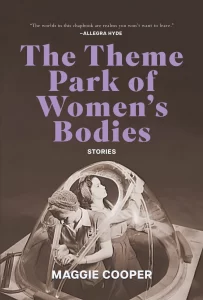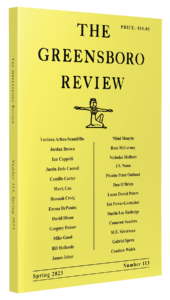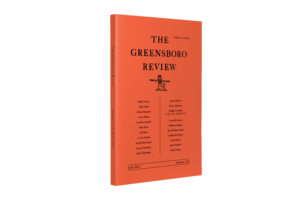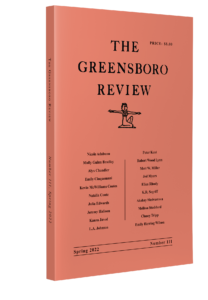Looking to meet some new short fiction?
By Hana Ishige, Editorial Intern
Name: “Goblin” by Robert Stone
Birthplace: Greensboro Review Issue 114
Height: Short Story
About me: Has an unbridled sense of feeling, flush with full-sensory details that immerse you further and further into the relationship between the father and the son. Inhabits a goblin who, upon reading me, you’ll find means much to the tethering of the family.
Sound of my voice: “Life could not simply be the wreckage you left behind you.”
—-
Name: “Extra Life” by Arielle Hebert
Birthplace: Greensboro Review Issue 114
Height: Poem
About me: Quick and sharp, tumbling through images of a near-death experience into introspective thought. Has a fascinating ability to go from something as small as a bullet to something as grand as the sea, to life—an extra life.
Sound of my voice: “This is the closest I’ve ever felt to our planet, / to becoming it.”
—-
Name: “Jenny Lynn & Buddy” by Jordan Brown
Birthplace: Greensboro Review Issue 113
Height: Short Story
About me: Guides the readers through snippets of Jenny Lynn’s and Buddy’s lives, diving into a broad trajectory of their relationship and their independent lives. Expect to see themes of love, sex, rehabilitation, and growth. From the beginning to the end, you’ll find in me a glimpse of two interesting lives intertwined.
Sound of my voice: “‘I remember your birthday every year, Buddy,’ she says. […]‘Every year’ he says back to her. ‘I remember yours too.’”
—-
Name: “Worship” by Beth Konkoski
Birthplace: Greensboro Review Issue 114
Height: Flash Fiction
About me: Carries an authentic voice who speaks of a life spent living in Church, with nuns and with worship. Artfully describes a certain day, one out of many, in which young boys play a game of tag, all while the nuns watch with growing trepidation, all while my narrator watches quietly but not silently.
Sound of my voice: “I tasted the copper truth of worship, held a throat full of awe for what the world could look like, how its shapes and soaring colors might open and fill me.”
—-
Name: “Focal Point” by Emma DePanise
Birthplace: Greensboro Review Issue 113
Height: Poem
About me: Invites you to ponder the meaning of your surroundings. My speaker holds their observations in the palm of their hand, wondering if what they see is damaged or full of life. Read me, and you’ll see images in sharp detail, at first glance perhaps personal to the narrator—upon second glance, personally to you.
Sound of my voice: “There is color everywhere I mistake / as destruction.”
Subscribe today to read more!
Hana Ishige is currently attending the University of North Carolina at Greensboro. She majors in English with a double minor in Creative Writing and Rhetoric and Public Advocacy. She is an editor at The Coraddi: Literary & Visual Arts Magazine, one of the oldest organizations at UNCG, and an editorial intern at The Greensboro Review. Outside of school, she has worked on ghostwriting projects and a translated children’s book.






